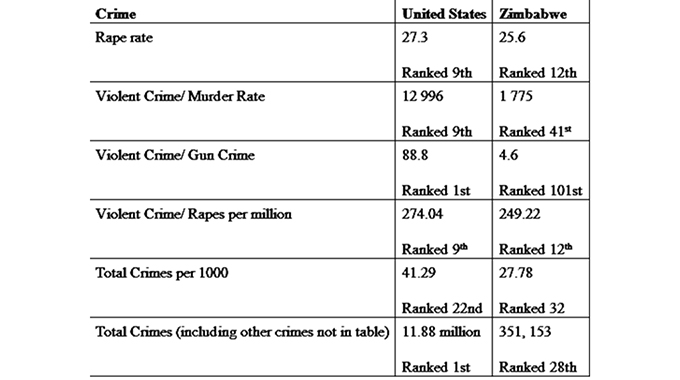Some questions over new HIV drug

Forward Nyanyiwa Correspondent
Thirty-four years ago, Zimbabwe recorded its first ever HIV/Aids case, marking the beginning of a deadly scourge that would blaze a trail, threatening to wipe out a generation which was caught flat-footed and depleted both in knowledge and firepower to fight the unassuming virus.
Precious lives were lost, mothers left their children and the number of child-headed families shot up as the country came face to face with a virus which had all the hallmarks of a deadly “tsunami” that has the potential to destroy everything in its trail.
Fast forward three decades on, Zimbabwe has come of age as it stands on the cusp of suppressing the once deadly virus by 2020 and to eradicate it in totality by 2030.
It is a feat that those who lived and experienced the onset of HIV and Aids back then never dreamt of.
Last week, Government unveiled a new regimen of anti-retroviral medication containing Dolutegravir (DTG), a drug which has significantly less side effects and is more affordable compared to the current line.
Currently, Zimbabwe has been using Tenofovir, Lamivudine and Efavirenz commonly known as Tenolam E as first line regimen after the scrapping of Stavudine, Lamivudine and Nevirapine (Stalanev) earlier in 2012.
The news came as sweet music to the ears of those living with the virus as well as various stakeholders who believe that the new treatment regimen can be key to achieving 90-90-90 HIV targets of 2020.
Pastor Maxwell Kapachawo, one of the first personalities to go public about their HIV-positive status, believes the new drug is a welcome development and the country is on course in its fight against the virus.
“We welcome DTG with open hands and I believe it’s a welcome development for the country as we move towards ending Aids by 2030.
“We don’t know now the information we are getting that it will be used by newly diagnosed patients and if we will remain on our current regimen.
“But we still believe the drug comes at a time when our Government is pushing for the suppression of this once deadly virus and, hopefully, it will be well-received by those who will take it,” said pastor Kapachawo.
Questions abound, however, from critics and concerned HIV-positive patients over some of the side effects DTG is said to cause and some tricky scenarios it might pose for the country.
DTG belongs to a class of drugs called intergrase inhibitors and it is probably one of the most effective drugs to reduce viral load.
It has a low risk of side effects, drug interactions and is less likely to develop treatment resistance which can stop the HIV medicine from working in the body to reduce viral load.
The most plus factor has been its pill formulation as it comes in a small tablet which is taken once daily compared to the current big tablet which has been propagating HIV stigma over the years.
On the contrary, DTG is not recommended for HIV- positive women who are intending to become pregnant, or pregnant women during their first trimester.
It is also prohibited from HIV-positive adolescent girls and women capable of becoming pregnant (including breastfeeding mothers).
Before taking DTG, adolescent girls and women of child bearing age should have a pregnant test or should be using a reliable, effective contraceptive method. This is because if taken by a pregnant woman, DTG can cause neurotubal defects like Spina Bifida, Spinal Occulta and Meningomyelocele to the unborn child.
Given Zimbabwe’s scenario, of the 1, 2 million people on ARVs, 54% of them are women and almost two thirds of them are of child-bearing age. Critical questions have arisen meanwhile whether the country has the capacity to roll-out effective and long-term family planning methods in order to accommodate DTG.
How many girls from remote areas can access the information and again have access to the said methods? Some feminists have also argued that it is akin to plan a family for someone all in the name of safe medication.
Said Mrs Maziwa Nyadawa, a HIV-positive woman from Chitungwiza: “I am torn between the need to use this new effective medication but at the same time I can’t prolong any further to have a baby.
“I can’t wait for the next five years I am likely to get if I chose an effective and long-term family planning method. The current drug has been causing me nightmares and I am happy that this new drug is free from that,” she said.
Director of HIV/Aids and TB unit in the Ministry of Health and Child Care Dr Owen Mugurungi however allayed such fears elaborating that HIV treatment and family planning options remain a patient’s choice.
“We are giving adequate information to all girls and women capable of becoming pregnant access to family planning methods to enable them to make informed decisions about their treatment choices.
“In fact, very soon we will start to roll-out long acting family planning methods countrywide and they will be for free. We are saying long-term contraception methods are the most effective way to get unintended pregnancies but at the same time all HIV-positive women who start on DTG and want to have pregnancies must discuss with their health care provider,” said Dr Mugurungi.
He also said Government stands guided by WHO guidelines and very soon, all the necessary logistics will be put in place for a successful roll-out, but women are advised that it is their right to make an informed decision.
“The Ministry stands guided by WHO guidelines and will adhere to those. Women with HIV are reminded that it is their right to make informed choices among ARVs regimen options and they will chose what they want,” he added.
National Aids Council (NAC) acting CEO Mr Raymond Yekeye said DTG is the way to go because of its efficacy and its potency to suppress the virus as the country continues to reach the 90-90-90 targets.
“As a country this new drug has come at a good time when we are chasing the 90-90-90 goals.
“If you want to look at it, we are almost done with the first two 90 percent, but it is the last 90 percent were we are lagging behind.
“DTG now offers us the only best opportunity to reach the last 90 percent because of its efficacy and proven potency. I want to believe the ministry is following international guidelines so there is nothing to worry about. This is a plus for us as we endeavor to end Aids by 2030,” he said.
While they may be mixed feelings towards the new drug, it is fact that it points to proven scientific and medical development and the long cherished dream of exorcising the HIV ghost could after all within near reach.
Zimbabwe remains on course to reach the WHO 90-90-90 targets which entails that by the year 2020, 90 percent of people living with HIV should know their status, 90 percent of those HIV-positive should be on ARVs and 90 percent of those on medication should have viral suppression.









Comments